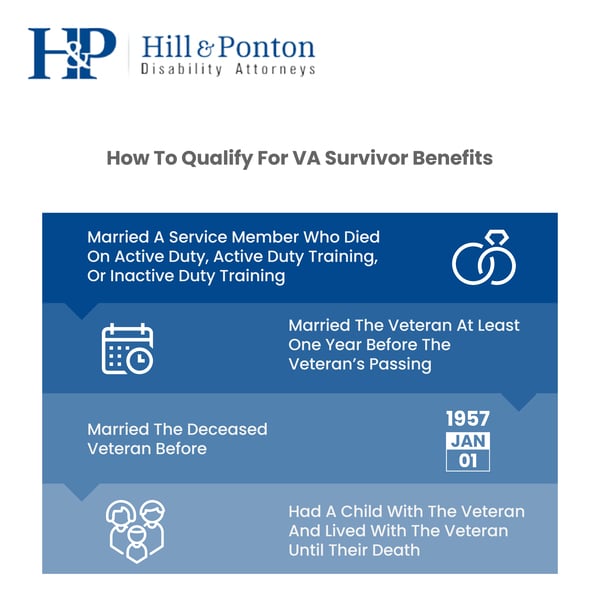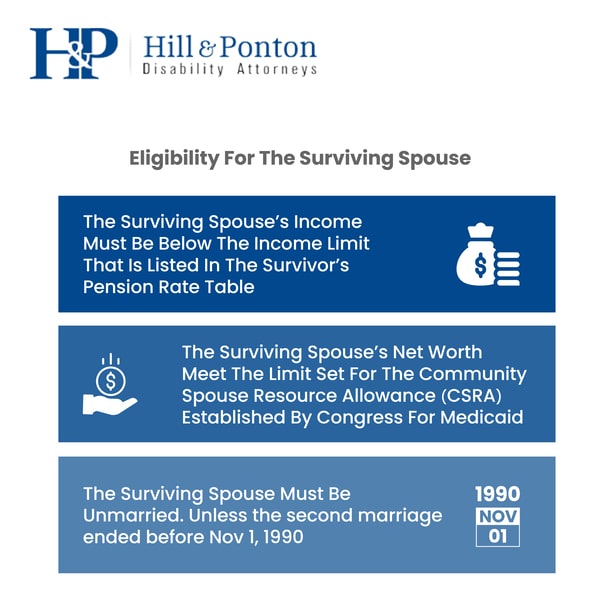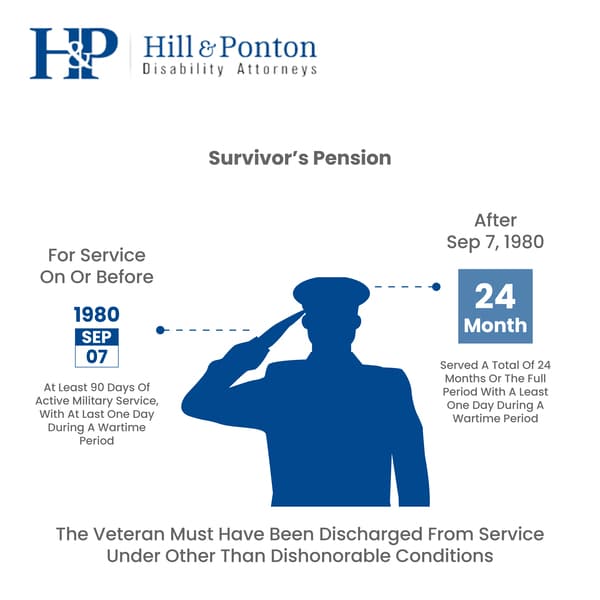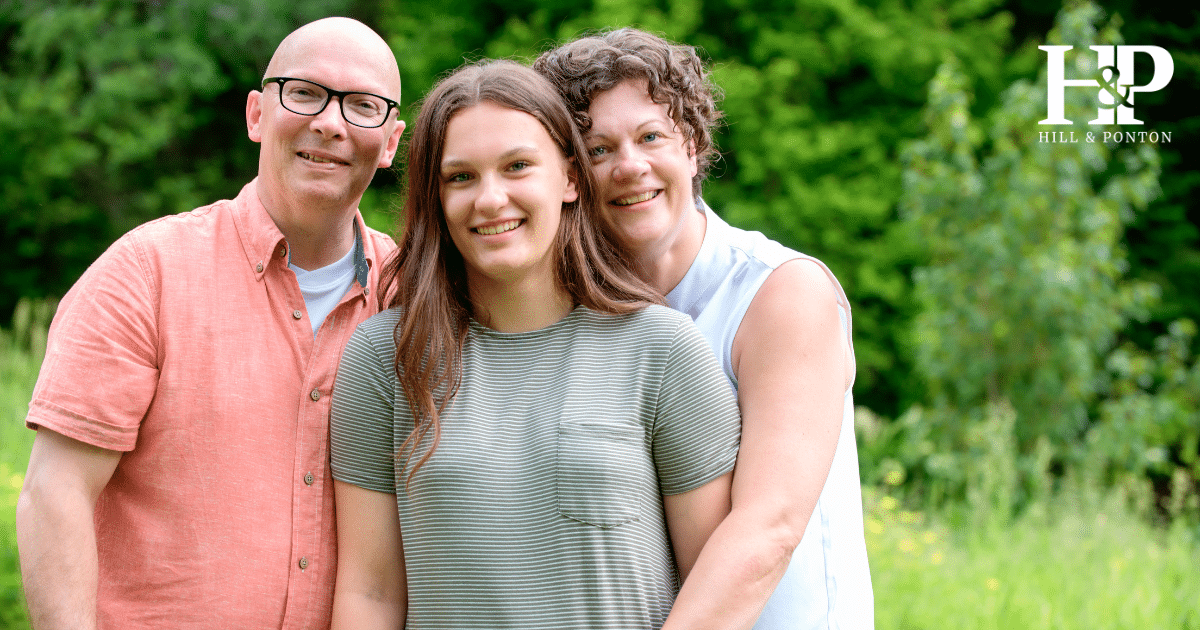Losing a partner who served in the military is a difficult change.
It’s not just about the loss of the loved one themselves, but also adapting to dealing with life’s challenges independently.
The VA tried to recognize this for spouses by creating Dependency and Indemnity Compensation (DIC), to help acknowledge your spouse’s service and your loss.
We’ve created a helpful guide to walk you through everything you know, including:
- Am I Eligible? We’ll cover who’s eligible, so you can ensure you get support.
- How Do I Apply? We’ll guide you through making the process simpler.
- How Do I Maximize My Benefits? Get the full range of support, including additional allowances you may be entitled to.
- Your Questions Answered We’ll cover the most common questions from spouses
Let’s get started and talk about everything you know to get the benefits you need.

Eligibility Criteria: Are You Qualified?
Figuring out if you are able to receive DIC benefits can be a puzzle, but it’s simple when you break it down.
Here’s the basics you need to know:
- Married to a Service Member? If your partner served in the military and you were married, you’re on the right track. The VA looks at marriages to make sure they were legal and recognized.
- When Did You Marry? If you tied the knot before your spouse left the service, or you were married for at least a year, you meet the VA’s requirements for this.
- What about Remarriage? If you remarried after your spouse passed away, this is where the rules get tricky. Generally, if you remarried after turning 55, you might still qualify.
- Living Together: Living with your spouse until they passed away is another key thing to consider. If you were separated, it should not have been due to your actions, in order to be eligible for DIC benefits.
How Does My Age Affect My Eligibility for DIC Benefits?
Your age mainly impacts eligibility in the context of remarriage. Aside from that, age doesn’t impact your eligibility for DIC benefits directly.
Understanding these basics will hopefully clear up most of the confusion about eligibility. Next, we’ll talk about how to apply, making sure you have all you need to move forward.

Navigating the DIC Application Process for Widows of Deceased Veterans
Applying for DIC benefits may seem a little daunting, but we’ll guide you through the basic steps to try to make it as smooth as possible.
Step 1: Gather Your Documents
First things first, you’ll need a few important documents:
- Your spouse’s DD214 or other military discharge papers. This shows their service history and status.
- Death certificate: To prove the loss of your spouse.
- Marriage certificate: To confirm your marriage to the service member.
- Any relevant medical records: especially if the death was service-connected.
Step 2: Fill Out the Form
The form you’ll be using for DIC benefits is VA Form 21P-534EZ, found here.
Fill it out with everything it asks for–take your time and be thorough!
Step 3: Submit Your Application
You’ve got a few options for submitting your application:
- Online: Upload your completed form and documents through the VA website.
- Mail: Send everything to the VA’s claims intake center. The address is on the form.
- In-Person: Visit a local VA office if you prefer to hand in your documents face-to-face.
Step 4: Wait for a Response
After you submit your application, there will be a waiting period where the VA will review your application. This can take time, so patience is key. You can check the status of your application online or by calling the VA.
What Should I Do If My Application for DIC Benefits Is Denied or I’m Not Getting the Right Benefit Amount?
If your application is denied, you have the right to appeal the decision. Consider seeking assistance from a VA-accredited representative or a veterans’ service organization to guide you through the appeals process.
Contact Hill & Ponton for information about how we can help you in your fight to secure the benefits you deserve.
Did the VA Deny Your Disability Claim?
Let our team review your case today!
Get a Free Case EvaluationWhat are the DIC Benefits for Spouses?
Losing a loved one who served in the military brings not only emotional pain but also concerns about the future.
Fortunately, the Department of Veterans Affairs (VA) offers a range of benefits designed to provide financial, educational, and practical support to surviving spouses.
Understanding and accessing these benefits can be a crucial step in securing your well-being and honoring the service of your departed veteran.
Below is a comprehensive list of benefits available to spouses of deceased veterans, including monthly compensation, educational assistance, healthcare, and more:
- Monthly DIC Payment: The primary benefit is a tax-free monetary payment made monthly to eligible surviving spouses at a base rate, with additional amounts for dependent children, and if the surviving spouse is housebound or requires the aid and attendance of another person. Current rates can be found on the VA website here.
- Aid and Attendance (A&A) and Housebound Benefits: These are additional payments on top of the base DIC benefit for spouses who require the aid and attendance of another person for personal functions required in everyday living or are substantially confined to their immediate premises because of a permanent disability.
- Educational Assistance (DEA – Chapter 35): Eligible spouses can receive educational benefits for degree and certificate programs, apprenticeships, and on-the-job training. Additionally, some schools might offer reduced tuition to DEA beneficiaries.
- Home Loan Guaranty: Surviving spouses may receive a VA guaranty for a mortgage loan, which helps secure better terms such as lower interest rates or the elimination of a down payment.
- Healthcare (CHAMPVA): If the surviving spouse does not qualify for TRICARE (the military’s health insurance program), they might be eligible for the Civilian Health and Medical Program of the Department of Veterans Affairs (CHAMPVA), which covers a portion of healthcare costs.
- Burial Benefits: Surviving spouses are entitled to burial benefits that include burial in a national cemetery, a government-furnished headstone or marker, a burial flag, and a Presidential Memorial Certificate. There may also be a burial and funeral expense allowance under certain conditions.
- Survivor’s Pension: For low-income surviving spouses of deceased veterans who served during wartime, there’s a survivor’s pension benefit. The amount is based on need and is designed to supplement the survivor’s income to reach a certain level set by law.
- Commissary and Exchange Privileges: Eligible surviving spouses and dependents have access to military commissaries, exchanges, and morale, welfare, and recreation (MWR) retail facilities.
- State Benefits: Many states offer additional benefits to survivors of deceased veterans, including property tax reductions, educational benefits, and state veterans cemetery burial. Check your local VA offices for more information.
- Counseling and Support Services: Surviving spouses have access to bereavement counseling through the VA to help with the emotional and psychological stress of losing a loved one.
Maximizing Your DIC Benefits for Spouses
It’s important you understand the full range of DIC benefits available to you, to ensure you are getting the support you deserve.
Here’s a few tips about how to maximize your benefits:
Check for Additional Allowances
Depending on your circumstances, you might be eligible for additional payments on top of the basic DIC benefit, including:
- Aid & Attendance (A&A): If you need help with daily activities or are housebound, look into A&A benefits.
- Dependent Children: If you have children under 18, you could receive additional payments for them.

Stay Informed About Rate Changes
DIC rates usually change year-to-year because of annual cost-of-living adjustments (COLA).
Keep an eye out on the VA website or on our site for updates to stay informed about any changes that might impact your benefits.
Update Your Information
Your life changes, so when it does, it’s important to update the VA.
Whether it’s a new address, a change in marital status or adding a child to your benefits, keeping the VA informed ensures your benefits reflect your current situation.
Explore Educational Benefits
As a surviving spouse, you may also be entitled to educational benefits, like the Survivors’ and Dependents’ Educational Assistance (DEA) program or the Fry Scholarship, to help cover costs for tuition, books, housing and other expenses, if you’re wanting to further your education.
Cassandra Crosby, an Accredited Agent and claims advocate for Matthew Hill & Shelly Mark’s teams, reviewed the information provided in this post.




